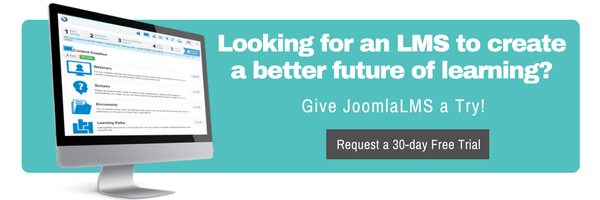A few decades ago we couldn’t even imagine that job market would evolve so significantly. Technology and economy changes, global competition growth and demographic changes dictate new terms and make people adapt to a new reality, master new skills and throw themselves into completely different career fields.

In a world of digital technologies, social media and high tech it is no surprise that eLearning job market is in strong demand. More and more businesses and educational institutions abandon traditional indoors teaching and training in favor of advanced, not tied to classroom online learning and as a result create new work places. But how to break into eLearning industry when you have little or no expertise? Which career to choose? Where to start the career search? Let’s find answers to all these questions.
Step 1. Job Market Research
Career path building starts from a market research, that is why we analyzed the existing job offers and compiled a table with job positions and small descriptions to walk you through.
Let’s look at the table:
| eLearning Roles | Description and duties | Qualifications needed |
|---|---|---|
| eLearning developer | ELearning developer works on course development, design and maintenance. | Instructions tools and technologies knowledge (Authoring tools, LMS, Photoshop, SCORM). Strong communicational skills and creativity. |
| Instructional designer | Instructional designer analyzes, designs and develops instructional materials and transfers them into online curriculum. | Instructional designer analyzes, designs and develops instructional materials and transfers them into online curriculum. Instructions tools and technologies knowledge (Authoring tools, LMS, Photoshop, SCORM). Analytical and writing skills. |
| Training and development manager | Training and development manager creates and implements training programs, evaluates effectiveness. | Strong interpersonal and communication skills. LMS and HRIS experience. |
| Learning Technology specialist | Learning Technology specialist is responsible for learning technologies initiatives (eLearning software implementation, administration, support and training). | Coding, instructions tools and technologies, graphic design software knowledge. |
| Learning and development specialist | Learning and development specialist conducts training sessions, administers LMS, assists with audit and collecting internal data | LMS and learning/training techniques knowledge. |
| Course developer | Course developer works on employee training programs design and development. | Instructions tools and technologies knowledge (Authoring tools, LMS, Photoshop, SCORM). |
| Content specialist | Content specialist is responsible for course content collection. | Strong research and analytics skills. |
| Multimedia learning specialist | Multimedia learning specialist works on enhancing learning engagement using design and multimedia skills. | Creativity, graphic design tools experience. |
Step 2. Skills Development
When the job market research is done, it is time to choose a career you would like to start working on. Look through the job postings and write out a list of the skills required. Mark the qualities you already possess, then connect the skills you have gained from previous job experience with the desired one and start working on gaining those you are missing!
There are plenty of ways to start with:
- Gaining the necessary theoretical knowledge through reading relevant literature, blogs on the Internet, Wikipedia, reports and experts’ opinions.
- Volunteer work on weekends or evenings.
- Internship (both paid and free).
- Connecting with people in the industry and asking for advice or help to enter the eLearning market (LinkedIn, Google+, eLearning communities).
- Independent LMS and Authoring software studies (through Demos, websites, podcasts, online webinars and trials, online training websites like www.lynda.com, www.coursera.org, www.udemy.com)
- Start a blog where you will describe your work, studies, gained knowledge and expertise.
- Building your online portfolio (work for non-profit organizations, create “how to…” tutorials).
- Get a degree or a certificate.
- Work on your resume and cover letter.
Step 3. Job Search
Let’s assume that the necessary skills are obtained and you are ready to fling yourself into the job search. Where to start?
Places to look for an eLearning job vacancies:
- Company’s LinkedIn pages;
- Freelance websites (www.freelancer.com, www.guru.com, www.elance.com, www.odesk.com etc.);
- ELearning communities such as Freelance Heroes;
- LinkedIn groups;
- Google Hangouts;
- Articulate jobs postings;
- www.elearningjobs.com;
- www.indeed.co.uk, www.careershift.com and other Job boards;
- Social media websites;
- eLearning Blogs and websites;
- eLearning conferences, seminars and events;
- Headhunters’ help;
- Etc.
Of course, the career change is always a stressful and time-consuming process but the game is worth the candle! According to TechNavio's analysts forecast, global eLearning market is expected to grow by 15% over the period of 2014-2019 and it means that you can’t lose! Good luck, anyway!
What to read next?
How to Become an Instructional Designer? - Interview with Kristin Anthony
How to Create Your First Online Course - Interview with Michael M. Milroy
Glossary of the Must-Know ELearning Terms









